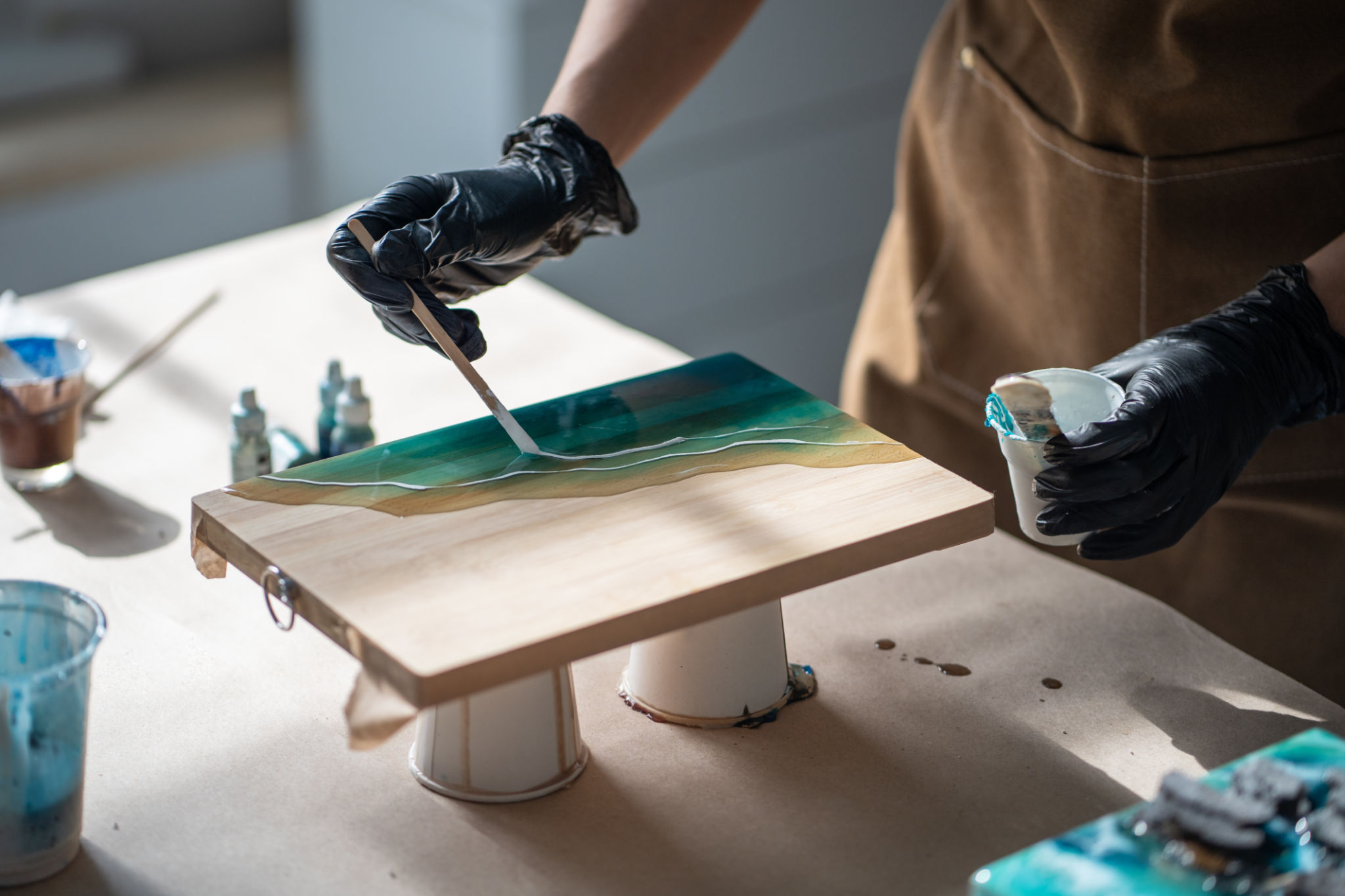5 Myths About Epoxy Countertops: Debunked
Understanding Epoxy Countertops
Epoxy countertops have gained popularity for their stunning appearance and durability. However, like many innovative materials, they are surrounded by myths and misconceptions that can mislead potential users. In this blog post, we aim to debunk five common myths about epoxy countertops to provide a clearer understanding of this versatile material.
Myth 1: Epoxy Countertops Are Not Durable
One of the most pervasive myths is that epoxy countertops are not durable. In reality, epoxy is incredibly resilient. It forms a hard, water-resistant surface that can withstand the daily wear and tear of a busy kitchen or bathroom. Its chemical composition allows it to resist stains, scratches, and heat, making it an ideal choice for high-traffic areas.

Myth 2: They Are Difficult to Maintain
Another common misconception is that epoxy countertops require extensive maintenance. Contrary to this belief, epoxy surfaces are relatively easy to maintain. Routine cleaning with mild soap and water keeps them looking pristine. Unlike natural stone, they don't need sealing or special cleaning products, offering convenience for homeowners.
Regular upkeep involves simply wiping down the surface to prevent buildup of dust or grime. This ease of maintenance adds to the appeal of epoxy countertops for busy households.
Myth 3: Limited Design Options
Many believe that epoxy countertops offer limited design choices. However, this couldn't be further from the truth. Epoxy provides endless possibilities for customization. It can mimic natural stones like marble or granite and even incorporate vibrant colors and patterns for a unique look.

Moreover, epoxy can be poured into any shape or size, making it adaptable for various design needs. This flexibility allows homeowners and designers to create bespoke surfaces tailored to specific tastes and requirements.
Myth 4: Epoxy Is Unsafe
Concerns about safety often arise when discussing epoxy countertops. Some worry about the potential health risks associated with chemicals used in the epoxy resin. It's important to note that once cured, epoxy becomes non-toxic and safe for food preparation areas.
During the application process, proper ventilation and protective gear are recommended. Once fully cured, epoxy countertops pose no health threat, making them a safe option for homes.
Myth 5: Epoxy Countertops Are Expensive
The perception that epoxy countertops are prohibitively expensive discourages some from considering them as an option. While initial costs might seem high compared to traditional materials, the long-term benefits often outweigh these costs.

The durability and low maintenance requirements of epoxy countertops contribute to their cost-effectiveness over time. Additionally, their ability to transform existing surfaces without the need for complete replacements can result in savings on renovation projects.
The Reality of Epoxy Countertops
In conclusion, epoxy countertops offer a blend of aesthetics, durability, and customization that debunks many myths surrounding them. By understanding the true nature of this material, homeowners can make informed decisions about incorporating epoxy into their spaces. Whether for a modern kitchen or a stylish bathroom, epoxy countertops can provide a durable and attractive solution that meets both functional and design needs.
